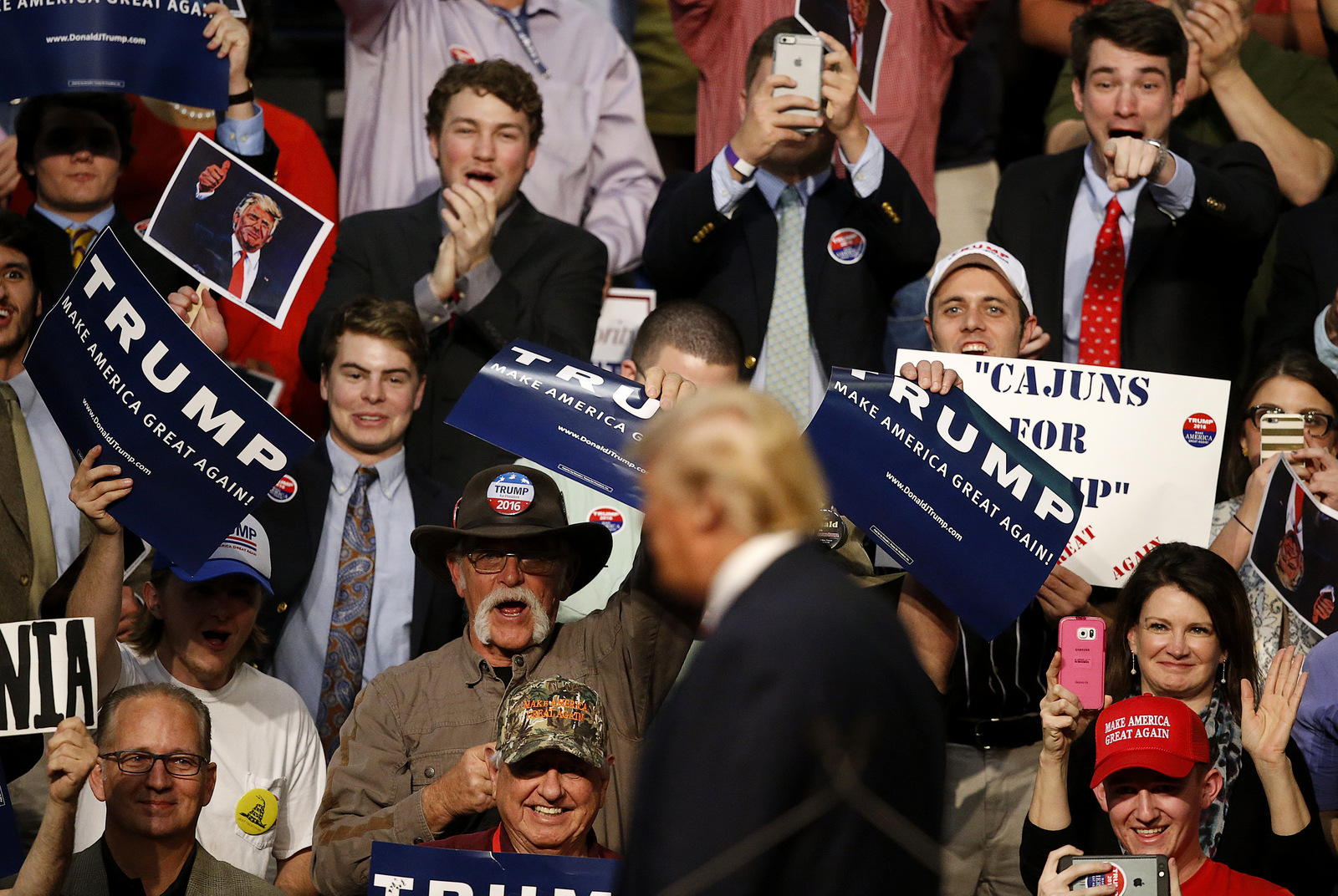Would America’s First Populists Even Recognize Trump’s Brand Of Populism?
February 2, 2017
Throughout his campaign, Donald Trump frequently appealed to ‘the people’ and vowed to help them take back their power. But how has populism moved so far from its roots in the left as to be useful as a strategy for today’s ultra-right wing?

The crowd cheers as Republican presidential candidate Donald Trump speaks at a campaign rally in Baton Rouge, La., Thursday, Feb. 11, 2016. (AP Photo/Gerald Herbert)
WASHINGTON — (Analysis) Donald Trump’s ascendency to the White House involved endless appeals to “the people” and denunciations of the elite.
During an October rally, for example, Trump said:
“It’s a global power structure that is responsible for the economic decisions that have robbed our working class, stripped our country of its wealth and put that money into the pockets of a handful of large corporations and political entities.”
His inauguration speech was laced in similar rhetoric:
“The establishment protected itself, but not the citizens of our country. Their victories have not been your victories. Their triumphs have not been your triumphs. And while they celebrated in our nation’s Capital, there was little to celebrate for struggling families all across our land. That all changes — starting right here and right now because this moment is your moment: it belongs to you.”
Populism is defined as political rhetoric championing the common person, the working class, or the disenfranchised. While in the present period populism is associated with right-wing nationalism, the nature of populism has shifted and evolved throughout U.S. history. Right-wing populism in the 21st century is just the latest incarnation of a quite diverse trend.
‘You are a worker’
“You are a worker,” a widely read pamphlet begins.
“One nice morning you are told your services are no longer needed. In plain words: you are fired. You are thrown out. … The employer has no more work for you. He cuts operations or he shuts his plant altogether. While you remain without a livelihood, he goes to his country estate or abroad to have a good time. …


